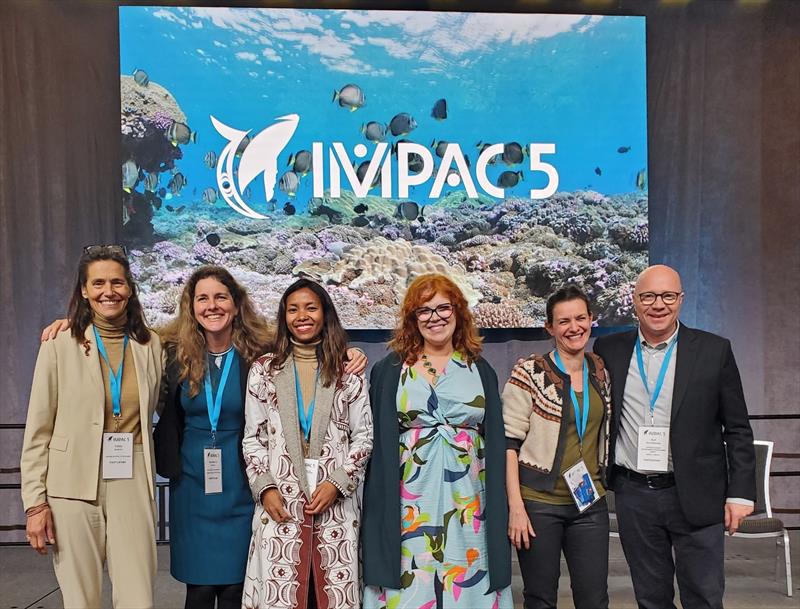
Global partners announce innovations for marine managers to help oceans with private sector support
by Business Wire 9 Feb 2023 03:33 PST
3-9 February 2023

Elizabeth McLeod of The Nature Conservancy and Ole Vestergaard of the UN Environment Programme joined the IMPAC5 symposium “Innovation in Improving Marine Protected Areas: A New Online Platform for the Planning and Management of MPAs.” © UN Environment Programme
MPAth, short for Marine Protected Area Tool Hub, is a free online resource for seascape stakeholders at every level. It uses the same problem-solving matrix honed by marine experts to guide users through a learning journey and help them address their most pressing challenges on sustainable livelihoods, financing, effectiveness, and climate change. (Credit: UN Environment Programme)
Ocean conservation managers and practitioners, global experts, and high-level officials are convening for the Fifth International Marine Protected Area Congress (IMPAC5) from February 3-9 in Vancouver, Canada, to take a stand to protect the ocean.
IMPAC5 is known as the preeminent conference for the exchange of knowledge within the global community of marine conservation managers, practitioners, and decision makers. It provides the opportunity to highlight the latest science and share experiences and best practices to strengthen the conservation of marine biodiversity and protect the natural and cultural heritage of the ocean.
A symposium at IMPAC5 entitled "Innovations in Improving Marine Protected Areas (MPAs)" provided an exclusive preview of a new online platform for the planning and management of MPAs. The learning platform guides MPA planners and practitioners through practical approaches to addressing key challenges that they face. This symposium brought together voices from all sides of marine conservation, emphasizing the importance of knowledge sharing to improve ocean management amongst stakeholders at every level.
With less than 3% of the ocean effectively protected, there is an urgent need to strengthen our efforts globally to increase marine areas under protection. We must also improve the effectiveness of marine protected areas in achieving their conservation and sustainability goals. The recently adopted Global Biodiversity Framework includes key objectives for protecting 30% of the planet's marine and terrestrial areas and restoring degraded land and seascapes by 2030.
Dr. Lizzie McLeod, Global Reefs Lead for The Nature Conservancy noted, "Harnessing lessons learned and best practices globally to achieve these ambitious targets in ocean management is a conservation priority including the co-creation of solutions with key partners."
By leveraging scientific innovation and new technologies and global best practices, marine managers are better able to tackle major threats facing marine ecosystems around the world. "MPAs are key to ocean health and sustainable development. But they are not always effective without a range of support. Decision support tools that enable improved MPA design and management, knowledge sharing, and collaboration are needed to give marine stakeholders the support they need to better protect the oceans," said Ole Vestergaard, Programme Officer, United Nations Environment Programme.
"Mary Kay is delighted to support TNC, in collaboration with UNEP and other experts from around the world, in an effort to protect our world's most precious assets: oceans," said Deborah Gibbins, Mary Kay's Chief Operating Officer. "These organizations are on the frontlines of the fight to preserve our waterways, and we're hopeful that with Mary Kay's funding support, they'll have the tools and resources needed to ensure our oceans are healthy for generations to come."